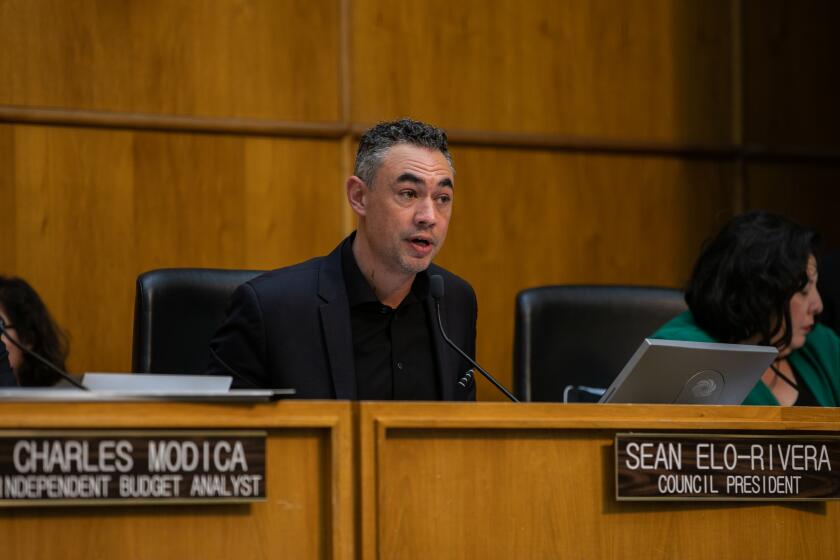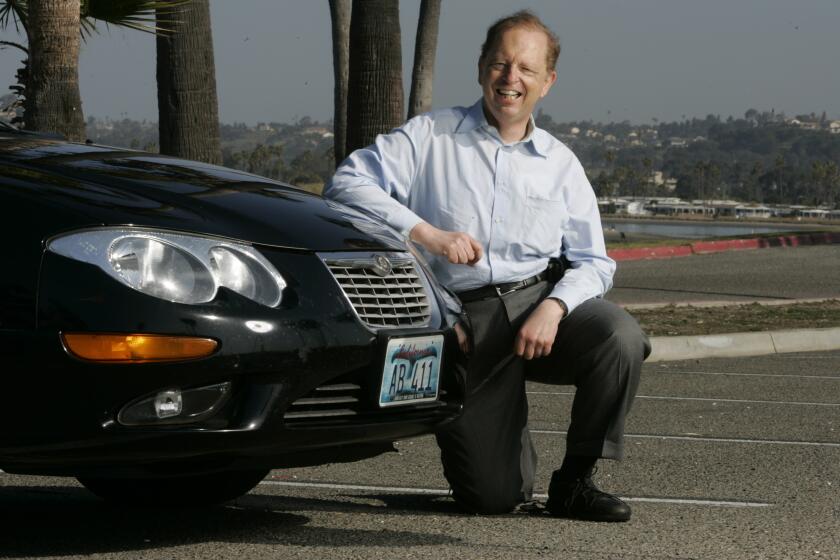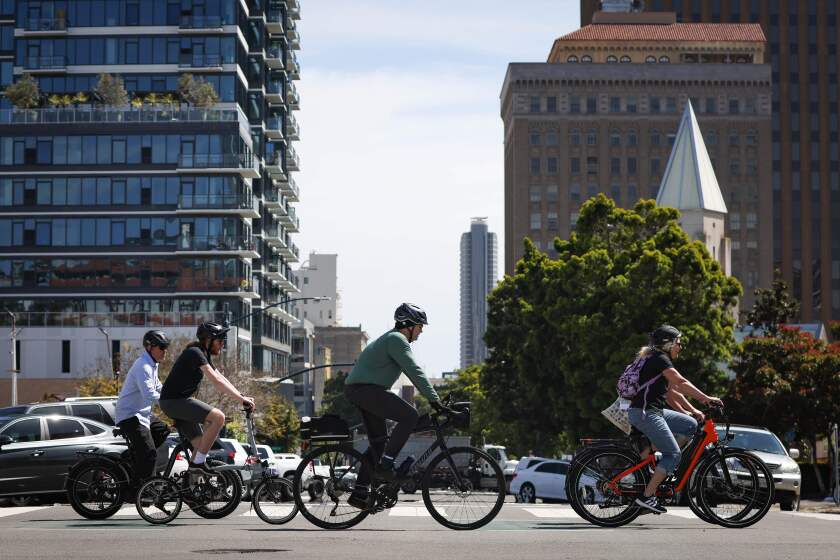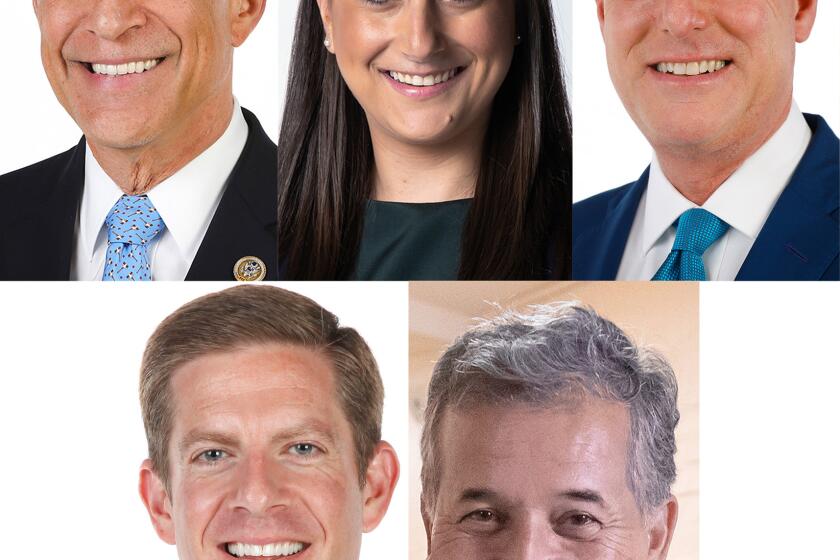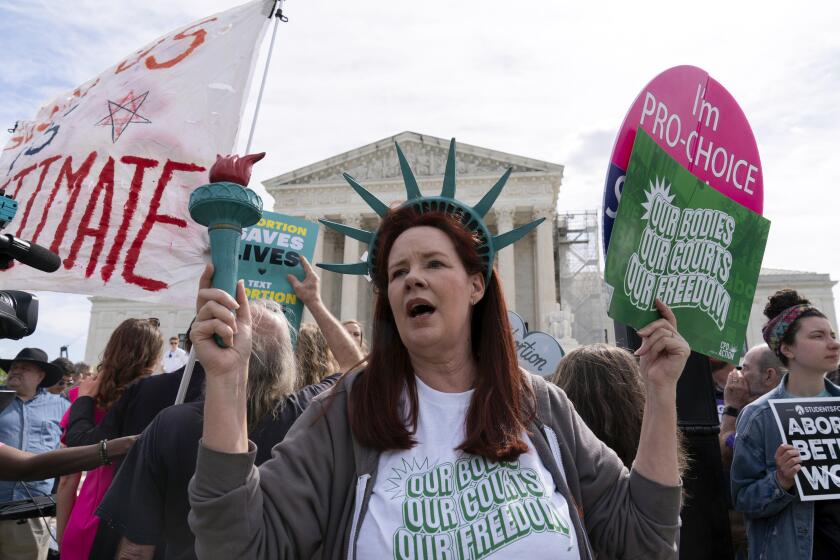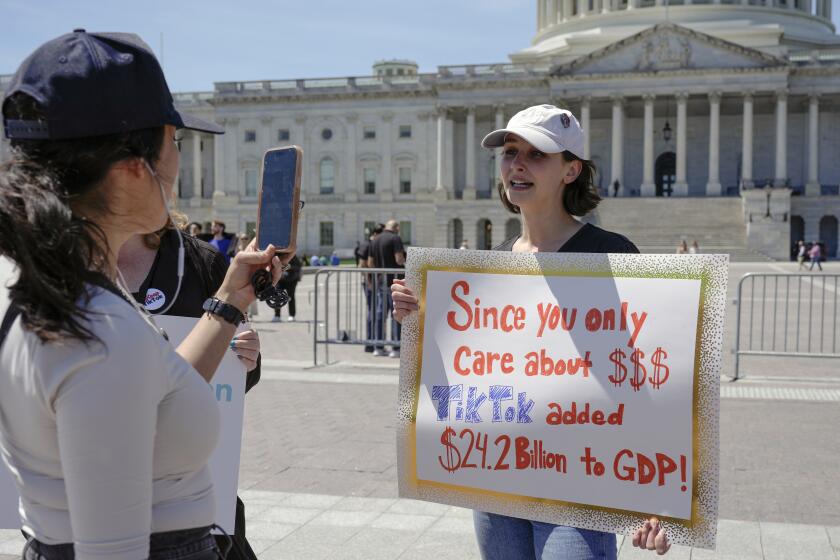San Diego leaders calling for thorough analysis of shifting money, tasks away from Police Department
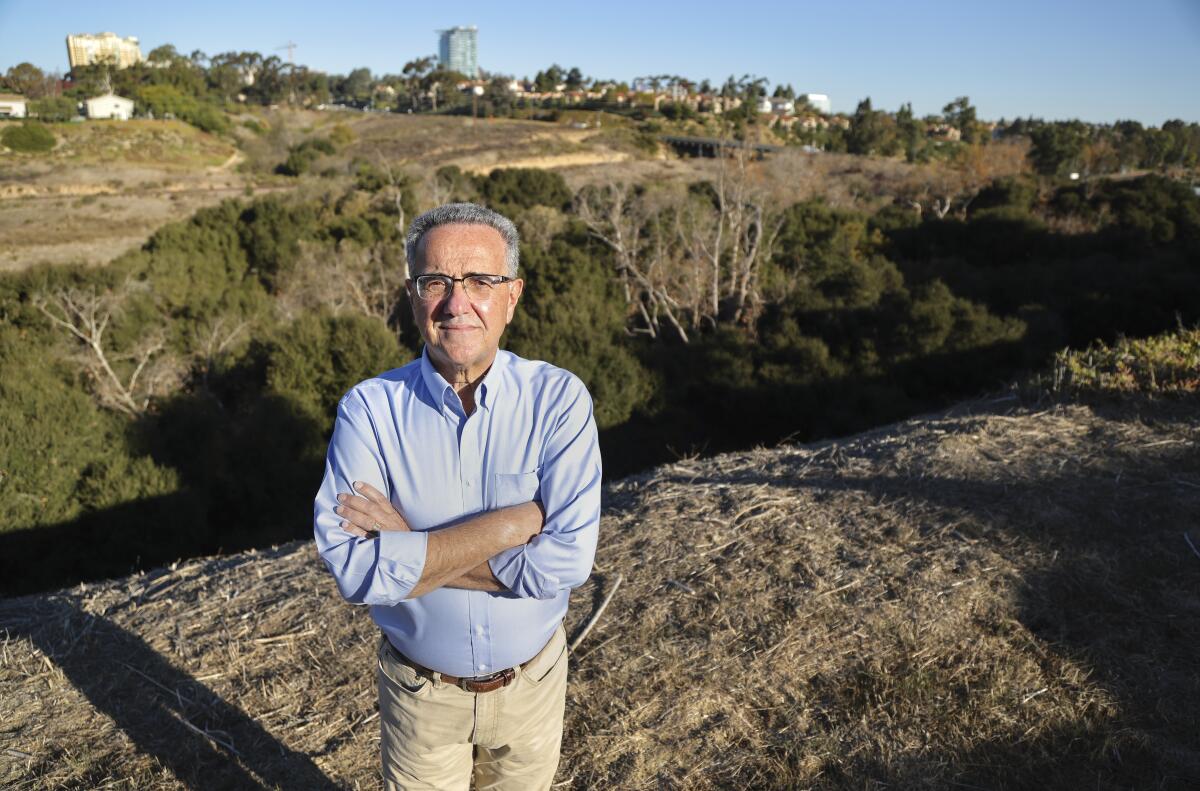
Council members continue to resist calls to quickly reduce police funding, but want to study longer-term options
While San Diego continues to resist calls for huge cuts in police funding, some city leaders have begun lobbying for a comprehensive analysis to determine which Police Department functions could be revamped or handled by other agencies.
City Council members endorsing such an approach say it’s likely to result in much slower and more incremental change than sought by groups that began chanting slogans like “defund the police” following the death of George Floyd last year.
Those council members contend that thoughtful analysis and targeted changes make more sense for San Diego than potentially kneejerk reforms.
“It can’t be sound bites, it can’t be ‘slash this and increase that,’” Councilman Joe LaCava said during a Friday public hearing on police spending. “It has to be a more thoughtful approach.”
But supporters of reform also say some modest changes could come this spring as part of deliberations over the budget Mayor Todd Gloria recently proposed for the new fiscal year, which begins July 1.
“I really do hope in the next month or so we can do a little bit more, dig a little bit deeper, have a few more really difficult conversations about right-sizing police,” said Councilman Sean Elo-Rivera.
Gloria proposed an increase of $24 million in annual police funding, from $568 million to $592 million, which the city’s Independent Budget Analyst says mostly ignores council requests to explore reduced police funding.
In budget memos last winter, a majority of council members asked the mayor to consider making such changes, particularly where police work could be shifted to social-service agencies or groups focused on homelessness.
“This priority is largely unaddressed in the proposed budget,” the independent budget analyst says. “Funding was not specifically reallocated, nor were services performed by the department reassigned to non-law enforcement service providers.”
LaCava, Elo-Rivera and Councilwoman Monica Montgomery Steppe say city leaders should take the advice of Jack Schaeffer, president of the city’s police labor union, and thoroughly study the issue.
“If you want to re-imagine the department, it should come with a real and comprehensive plan,” Schaeffer told the council Friday. “Otherwise, reimagining is a buzz word you are using to defund the department for a political purpose.”
Schaeffer warned that deep cuts to police in other cities during the last year have led to spikes in crime. He also said reform might cost more instead of less, suggesting additional money is needed for training and community policing.
“True reimagining requires investment in the department rather than cuts,” he said.
But Schaeffer said the union generally supports the idea that police should no longer be the first responders to many situations involving homeless people.
Elo-Rivera said that could be an opportunity, calling a new outreach program led by nonprofit People Assisting the Homeless a potential model for shifting homeless duties away from police to social-service agencies.
Elo-Rivera, however, conceded that making significant changes will take thorough analysis.
“This is going to take a very, very long time,” said Elo-Rivera, warning reform supporters not to expect too much this budget cycle.
Montgomery Steppe, the council’s leading voice on police reform as chair of the public safety committee, agreed the city should make some small changes now and larger changes after thorough analysis.
“There is definitely a continued need for our (police) department, but there’s also a need for other types of investments in our communities,” she said, suggesting libraries, parks and other neighborhood amenities can reduce crime. “We have to have the right conversation.”
Montgomery Steppe said the city’s police budget, which has increased $214 million since 2011, is not sustainable long-term and must eventually be cut by shifting some functions elsewhere.
“I think we can do better,” she said.
The council’s comments came after dozens of speakers complained about racial disparities in policing and recent spikes in violent crime. Many also lobbied for reduced police funding, but a few said funding should stay the same or increase.
“It is the duty of the City Council to prioritize public safety,” said resident Tammy Martin. “Our police are already under-funded, yet they do their duty to keep us safe.”
Beverly McAlla agreed.
“Defunding the police is not the answer,” she said. “Appropriately funding the police such that they can enforce quality-of-life criminal offenses and fund mental health service programs and individuals is what the budget should reflect.”
But a large majority of speakers lobbied for cuts.
“Increasing the budget for police leads to militarization of the force, which perpetuates further violence,” Veronica Philipsborn said.
“Research shows that reducing police engagement with citizens will actually make our communities safer,” said retired Lt. Col. David Gapp. “Spend that money on engagement teams, particularly psychiatric emergency response teams that are needed to handle the mentally ill in San Diego.”
Get Essential San Diego, weekday mornings
Get top headlines from the Union-Tribune in your inbox weekday mornings, including top news, local, sports, business, entertainment and opinion.
You may occasionally receive promotional content from the San Diego Union-Tribune.

